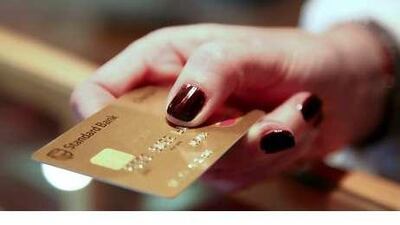Last week, I did something I have never done before. I took out my credit card bill and categorised my payments into two columns: experiences and objects. Going to a restaurant was an experience; buying a Zara dress was an object. The reason for this curious exercise was a research paper, recently published in the Journal of Consumer Psychology with a provocative title "If money doesn't make you happy, you probably aren't spending it right". Written by Elizabeth Dunn of the University of British Columbia, Daniel Gilbert of Harvard University and Timothy Wilson of the University of Virginia, the paper offers eight principles on how to spend money so that it improves, or as the authors prefer to call it, "buys" happiness. Choosing to spend money on experiences rather than things was the first suggestion.
Our grandparents always told us that money cannot buy happiness, at least mine did. The fact is they were wrong. Scientists have studied the correlation between money and happiness. Their conclusion is that there is a positive but only modest connection between the two. Recently, there have been a slew of books that attempt to chart out tangential paths to happiness. Gretchen Rubin's best-selling book, The Happiness Project, takes a practical, month-by-month approach to improving the way we spend time and money. The Art of Choosing by Sheena Iyengar, a professor at the Columbia Business School, analyses the decisions we make and how we make them.
Too many choices can overwhelm, she says, and sometimes abdicating tough choices can be healing and helpful. Happier: Learn the Secrets to Daily Joy and Lasting Fulfilment by Tal Ben-Shahar is a middling read. The class that Ben-Shahar taught at Harvard that was the basis of the book would have been a better choice and experience. Martin Seligman, the "father" of positive psychology, wrote Authentic Happiness and continues to work on the subject.
Ms Dunn's paper has the advantage of brevity and its eight principles make eminent sense. Her first suggestion, for instance, is to buy experiences rather than things: attending a music concert rather than buying a new suit; indulging our passions and hobbies be they flying, skiing or antiques collecting; learning a new language or taking an art class. The second suggestion has to do with helping others.
"Human beings," she says, "are the most social animal on our planet. Only three other animals (termites, eusocial insects such as ants and bees, and naked mole rats) construct social networks as complex as ours and we are the only one whose complex social networks include unrelated individuals." Her second suggestion is about what she calls "pro-social spending" or, in plain English, helping others instead of yourself. This has been proven in study after study. Those of us with the strongest human connections are the happiest; and an easy way to develop such human connections is to volunteer, to spend money on our preferred charities. The third principle is my favourite: buy many small pleasures instead of few big ones. In other words, if you have US$15,000 (Dh55,090) to spend, you could buy one Hermes Birkin handbag, or you could buy a whole new wardrobe. Ms Dunn would advocate doing the latter because of a notion called "adaptation."
Once an object becomes a possession rather than a yearning, the pleasure it offers decreases. Smaller pleasures, therefore, are less susceptible to "diminishing marginal utility". People who diet know it; eating one chocolate is a thrill but eating several is a guilt trip. Ms Dunn suggests "people can therefore offset diminishing marginal utility by "breaking up" or "segregating" a pleasurable experience such as biscuit-eating into a series of briefer experiences. Separating pleasure into bite-sized bits works, she says. This is eminently practicable in everyday life: get a massage instead of an expensive massage chair. Rather than going out to an expensive restaurant once a month, get a drink at the chic bistro once a week, if possible with friends. Less expensive, more social contact and a whole lot more pleasure. By treating ourselves to frequent new and pleasurable experiences, we can spread the wealth, literally.
There are several other suggestions in the Journal's paper, which is available on the internet:buy less insurance; pay now and consume later; follow the herd instead of your head; and beware of comparison shopping. Most of them touch upon things that we all know or have thought about. For example, I have found there is greater pleasure to be had in the lead up to a grand event,such as a family wedding, than the actual event itself.
Talking to girlfriends about what dress you are going to wear, going to the beauty parlour to get yourself pretty for the big day - all afford greater pleasure, sometimes, than the actual day itself. Ms Dunn's paper reinforces all these things we have noticed in passing and forces you to be mindful about your spending. Mindful spending: what a great way to mix eastern and western paths to happiness - and one that both a monk and a money manager would approve of.
business@thenational.ae

